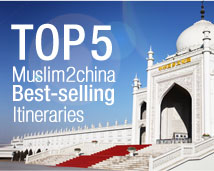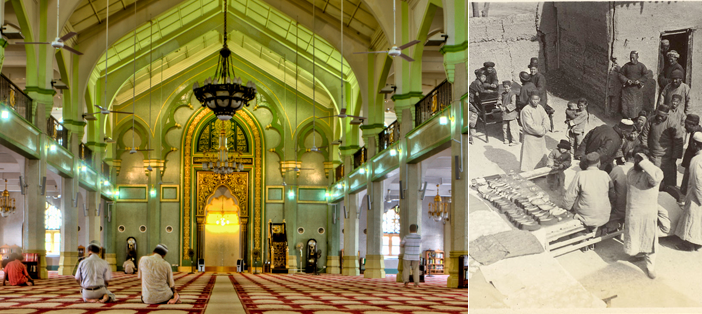Origin of Islam in China
The history of Islam in China can be traced back to 616-18 AD when it was introduced into China by Sa'ad ibn abi Waqqas. In 637 AD Sa`ad ibn Abi Waqqa and three Sahabas, Suhayla Abuarja, Uwais al-Qarni, and Hassan ibn Thabit, came to China from Persia for the second time. It is believed that the actual practice of Islam in China happened in 651 AD when Sa`ad ibn Abi Waqqas was sent as an official envoy to Emperor Gaozong who ordered the building of the Huaisheng Mosque in Guangzhou in memory of Prophet Muhammad.
Tang Dynasty
During the Tang Dynasty the trade of the Silk Road attracted many Arab and Persian merchants to China and many merchants eventually settled and married local Chinese and formed a Chinese Muslim population that would be known as the Hui ethnic group. It was also during the Tang Dynasty that the first Muslim embassy was established and the construction of mosques began. Through the Arab and Persian settlers they introduced their cultures and traditions to China.
Song Dynasty
By the Song Dynasty Muslim merchants dominated the trade and commerce that influenced the economy of China. Notable events that highlighted the importance of Muslim settlers in China was in 1070 when Emperor Shenzong summoned 5,300 Muslim men from Bukhara to settle in China as a campaign against the Liao Empire. The Muslims then settled in Kaifeng and Beijing which created a neutral area between the Song and Liao Empire. By 1080 10,000 Arab men and women settled in the north and north east of China.
Yuan Dynasty
With the establishment of the Yuan Dynasty in the 13th century by the Mongolian people the Muslim population dramatically increased. During the Yuan Dynasty many foreigners were appointed for high ranking positions. Muslim immigration was encouraged and the number of Muslims rapidly increased to 4,000,000 by the 14th Century. The Yuan Dynasty served as an important time in history for Muslims in China. The importance of Muslim officials could be represented by events such as the appointing of Muslim architect Amir Al-din to design Dadu the capital of the Yuan Dynasty.
Ming Dynasty
The Ming Dynasty generally marked the end of Muslim immigration, the Mongol and Muslim population brought to China through the Yuan Dynasty remained and fully immersed with the Chinese society. Muslims of the Ming Dynasty began to take Chinese names and dress like the Chinese. They also began to practice the Chinese language and Halal Chinese Cuisine was developed with traditional Halal food incorporating Beijing Cuisine elements. Several mosques were built during the Ming Dynasty but the influence of Chinese architecture was evident with the traditional domes and minarets left out and the use of pagodas became common. During the Ming Dynasty there were many notable military generals who were also Muslim and were extremely loyal to the Ming Dynasty.
Qing Dynasty
By the Qing Dynasty mosques were widespread and in cities such as Beijing, Xian, Hangzhou and Guangzhou the number of mosques increased, many of these mosques were constructed using Chinese architecture. Muslim government officials and army generals continued to serve the Qing Dynasty. However, with many previous Ming Dynasty loyal Muslims, the Qing Dynasty witnessed five Muslim rebellions which were unsuccessful in overthrowing the Qing government.
Republican and Commnunist Period
The establishment of the Republic of China by Sun Yat-sen in 1912 seen the end to dynastic rule in China. After establishing the Republican Government Sun Yat-sen announced that the country belonged to the Han, Muslim, Mongolian and Tibetan people of China. The same year the Chinese Muslim Federation was established in Nanjing followed by organizations in Beijing, Shanghai and Jinan.
By the time Deng Xiaoping was the leader of Communist China, the Chinese government opened up its policies towards Muslims. The legislation gave all minorities the freedom to use their own spoken and written languages and develop their own culture and practice their religion
Ask Questions
- Reply within 1 working day
- 24/7 backup
- Easy cancellation
- No forced shopping
- Designed by professionals
- Tailor-made itineraries
- Free changes
- No hidden charges
- Tour mosques in China
- Halal food & restaurants
- Knowledgable guides
- Top Muslim destinations
| 1 |
Enquiry
|
2 |
Free Quotation
|
| 3 |
Free Changes
|
4 |
Confirmation
|
| 5 |
Refund Guarantee
|
6 |
Enjoy Tour
|






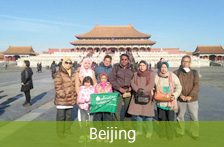
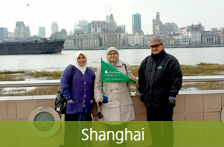
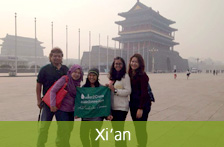
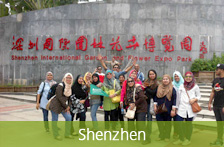
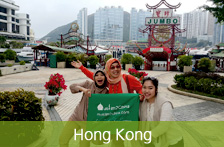
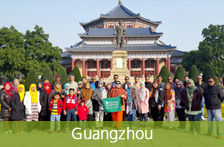
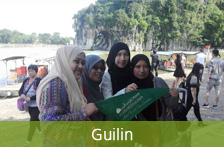
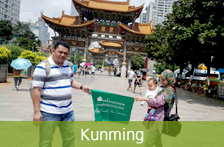
.jpg)









